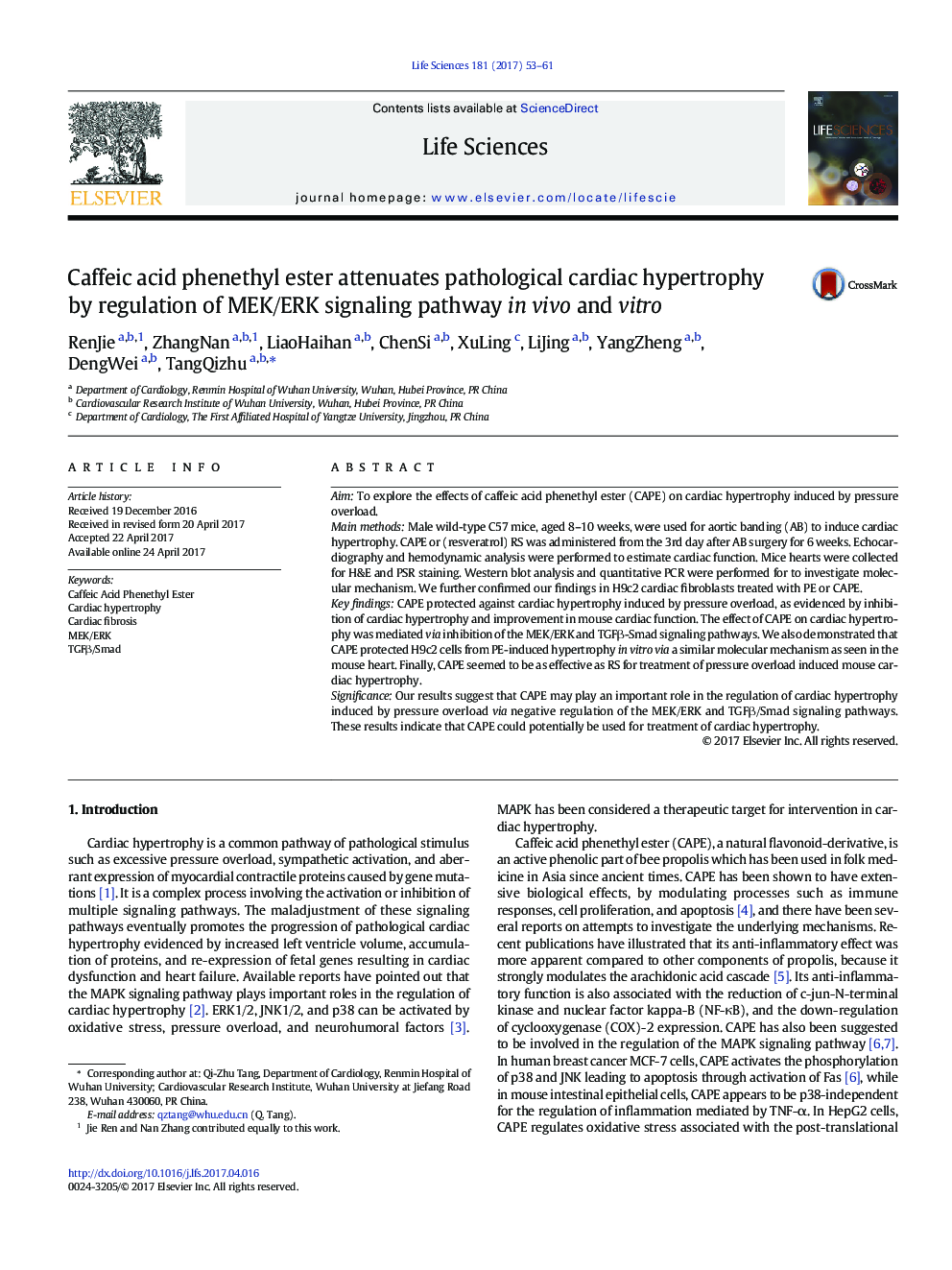| Article ID | Journal | Published Year | Pages | File Type |
|---|---|---|---|---|
| 5556905 | Life Sciences | 2017 | 9 Pages |
AimTo explore the effects of caffeic acid phenethyl ester (CAPE) on cardiac hypertrophy induced by pressure overload.Main methodsMale wild-type C57 mice, aged 8-10 weeks, were used for aortic banding (AB) to induce cardiac hypertrophy. CAPE or (resveratrol) RS was administered from the 3rd day after AB surgery for 6 weeks. Echocardiography and hemodynamic analysis were performed to estimate cardiac function. Mice hearts were collected for H&E and PSR staining. Western blot analysis and quantitative PCR were performed for to investigate molecular mechanism. We further confirmed our findings in H9c2 cardiac fibroblasts treated with PE or CAPE.Key findingsCAPE protected against cardiac hypertrophy induced by pressure overload, as evidenced by inhibition of cardiac hypertrophy and improvement in mouse cardiac function. The effect of CAPE on cardiac hypertrophy was mediated via inhibition of the MEK/ERK and TGFβ-Smad signaling pathways. We also demonstrated that CAPE protected H9c2 cells from PE-induced hypertrophy in vitro via a similar molecular mechanism as seen in the mouse heart. Finally, CAPE seemed to be as effective as RS for treatment of pressure overload induced mouse cardiac hypertrophy.SignificanceOur results suggest that CAPE may play an important role in the regulation of cardiac hypertrophy induced by pressure overload via negative regulation of the MEK/ERK and TGFβ/Smad signaling pathways. These results indicate that CAPE could potentially be used for treatment of cardiac hypertrophy.
